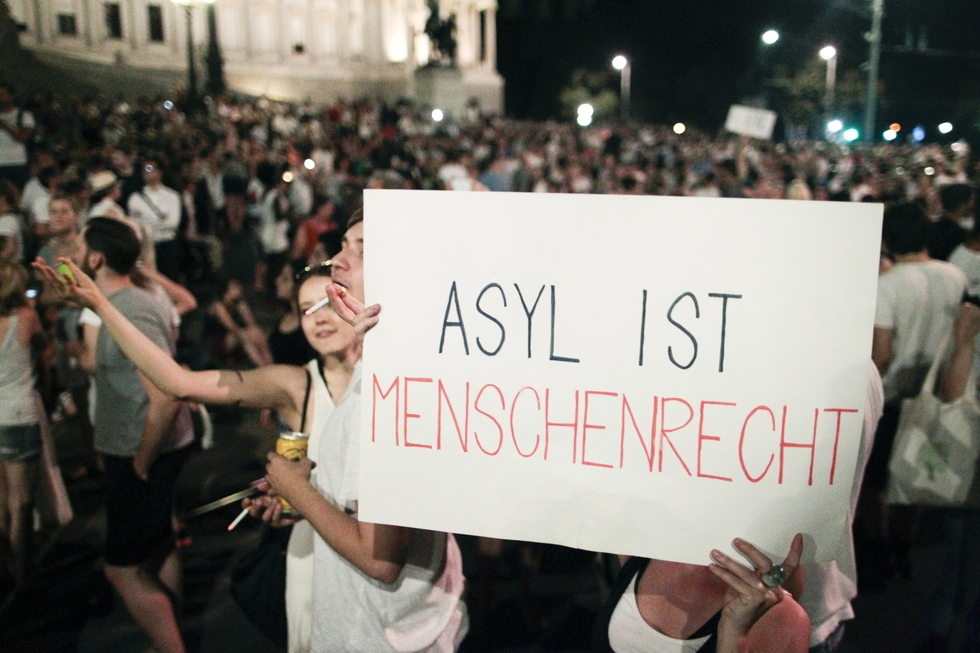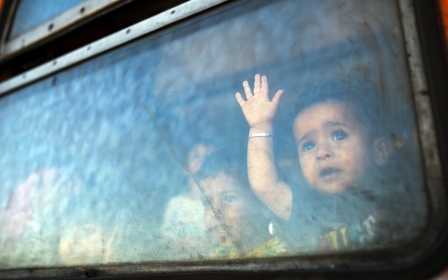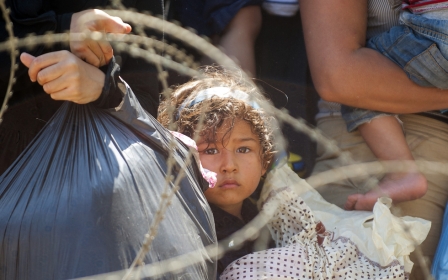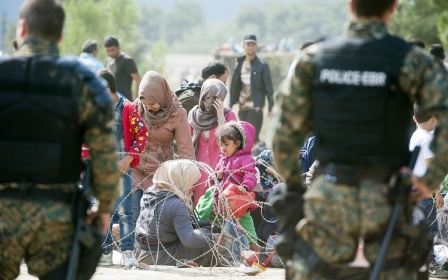20,000 march in Austria to support refugees

Around 20,000 people took to the streets of Vienna on Monday to demonstrate against ill-treatment of refugees, police said, after the bodies of 71 people were found in an abandoned truck last week.
Police and forensic medical examiners suspect that the refugees' demise was the result of suffocation or dehydration.
Holding up large banners reading "Refugees welcome" and "I don't want Europe to be a mass grave", demonstrators of all ages rallied at the city's Westbahnhof train station before heading down a major shopping thoroughfare.
A large part of the inner city had been cordoned off for the march.
As they slowly wound their way through the capital, the protesters sang Austrian pop songs about love and solidarity, to spontaneous applause from bystanders.
Among those marching were parents carrying children on their shoulders, while police officers watched from the sidelines with their helmets under their arms.
The demonstrators, many dressed in white, congregated in front of parliament, where they lit a sea of candles.
Addressing the crowd, protest organiser Nadia Rida accused Europe of "political failure" and "inhumane treatment" of refugees.
"See how many we are - we too can move things," she said in an emotional speech.
Authorities praised the calm nature of the demonstration after it had finished at 1930 GMT.
"There was not a single incident," police spokesman Patrick Maierhofer said.
The march took place as a service was held for the dead at St. Stephen's Cathedral.
"We've had enough - enough of the deaths, the suffering and the persecution," the archbishop of Vienna, Cardinal Christoph Schoenborn, told the congregation, which included senior government members.
He said it was "too awful" to think of the plight of the refugees in the truck, four of whom were children.
The grim discovery was made in a refrigerated truck found off a motorway near the Hungarian border.
Trains carrying hundreds of refugees arrived at Westbahnhof from Budapest, Hungary on Tuesday after they had been stopped at the Austrian border for several hours.
After pulling into the station, many people boarded a train to the Austrian city of Salzburg, while others climbed on to another one headed for Munich in southern Germany, with police looking on, an AFP correspondent at the scene said.
The United Nations estimates 300,000 people have fled conflict and hardship in the Middle East and Africa for a better life in Europe this year alone. Millions more sit in camps in Turkey, Jordan and Lebanon.
Some 2,500 have died in the treacherous journey, most drowning in the waters of the Mediterranean after being crammed into unseaworthy boats.
For those who have survived, the response has varied, with some receiving warm welcomes and smiles, others jeering crowds throwing bottles and rocks.
Having reported 50,000 new arrivals just last month, Hungary has completed the construction of a barrier of three rolls of NATO-standard razor wire along the entire 175-kilometre (110-mile) border with Serbia, patrolled by border police with dogs and 4x4s, reported AFP.
Right-wing Hungarian Prime Minister Viktor Orban's government is also building a four-metre-high fence and wants to stiffen penalties for people entering illegally.
Middle East Eye propose une couverture et une analyse indépendantes et incomparables du Moyen-Orient, de l’Afrique du Nord et d’autres régions du monde. Pour en savoir plus sur la reprise de ce contenu et les frais qui s’appliquent, veuillez remplir ce formulaire [en anglais]. Pour en savoir plus sur MEE, cliquez ici [en anglais].




